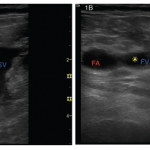WASHINGTON, D.C.—Speaking at the 2016 ACR/ARHP Annual Meeting in a session titled ARHP: Immunology Boot Camp I: Basis of Targeted Therapy, a rheumatologist and immunology expert gave a guided tour of the immune system, described what can go wrong with it and outlined what physicians can do when it does. Troy Torgerson, MD, PhD, associate…








